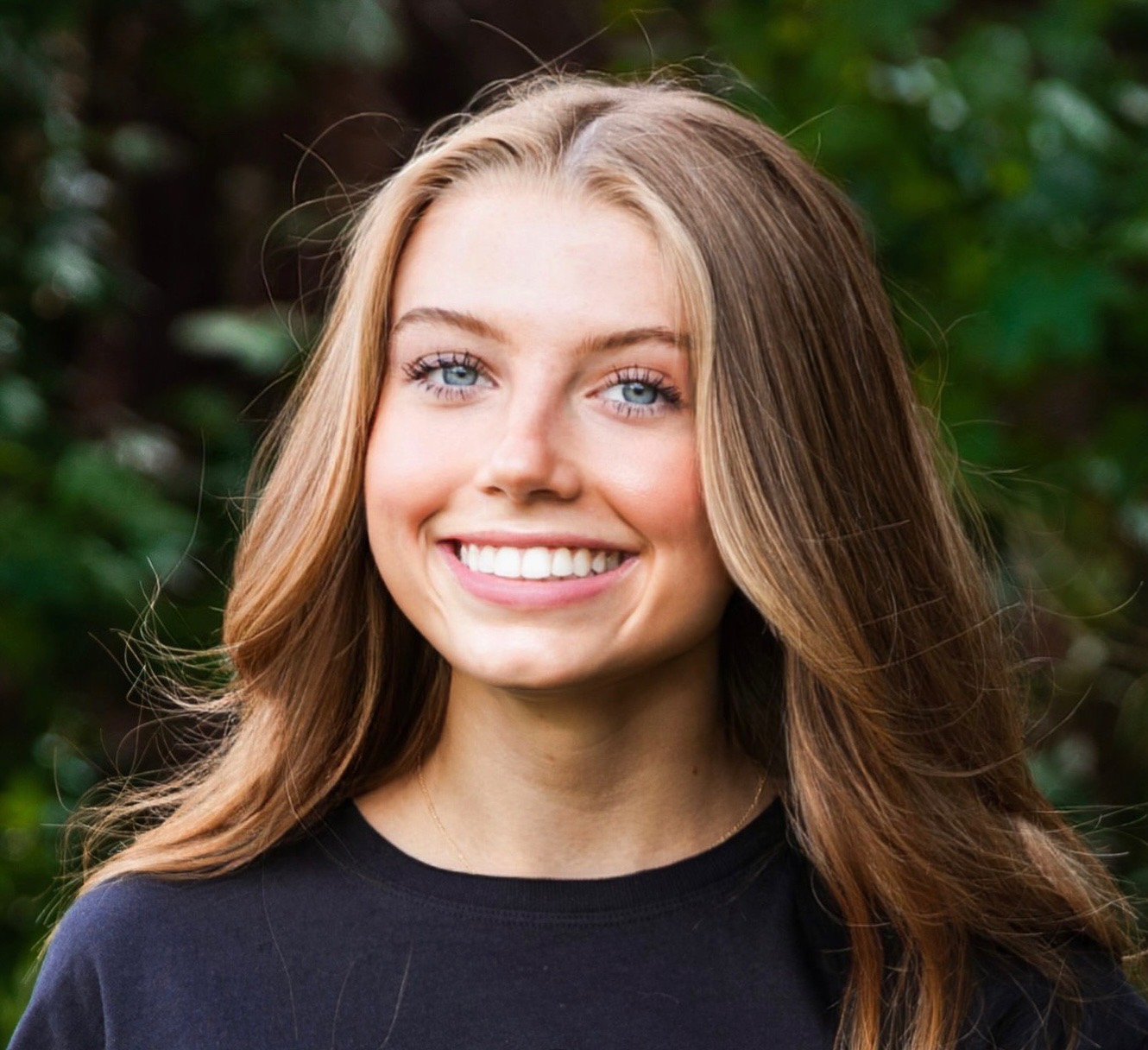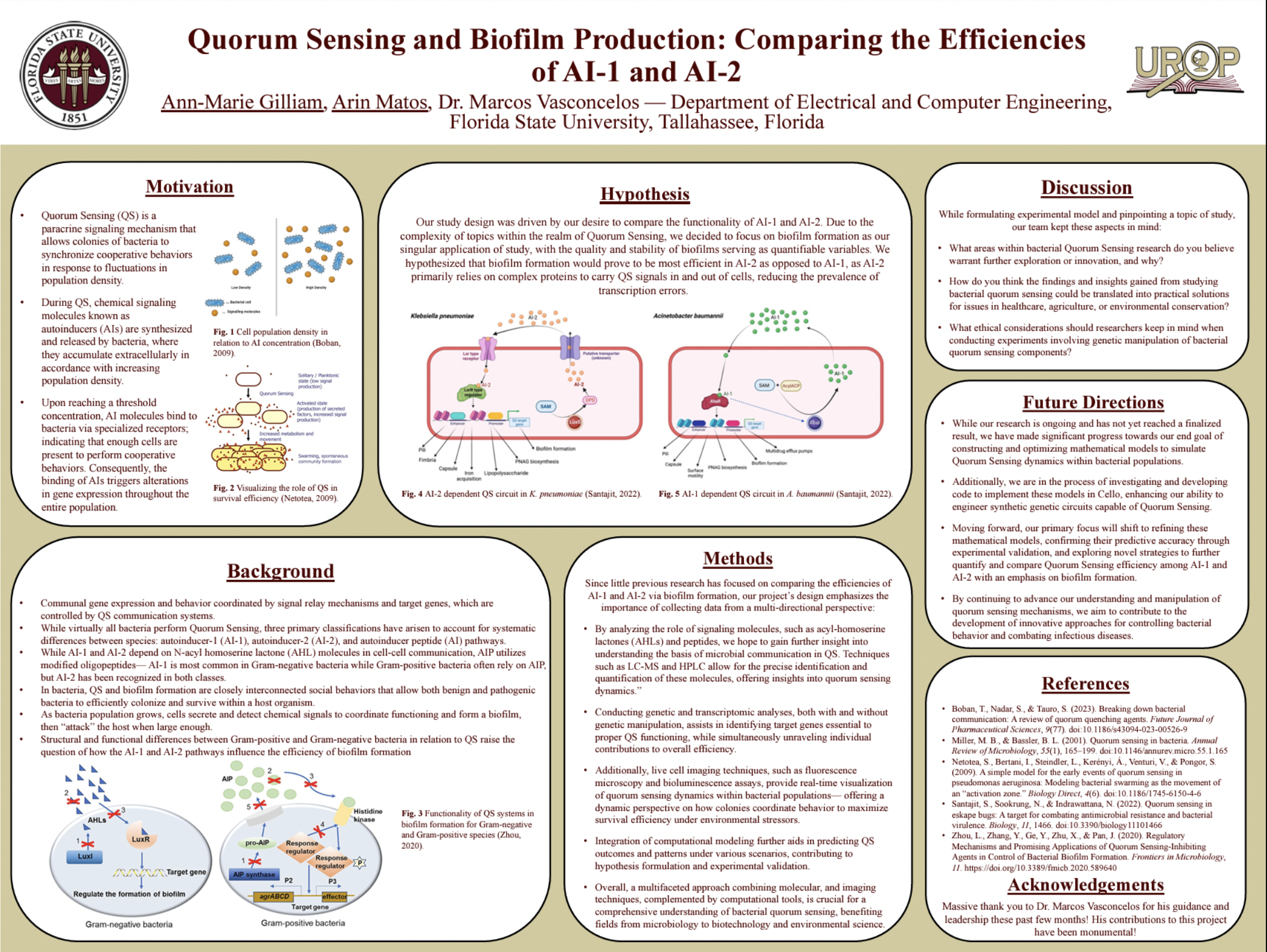Research Symposium
24th annual Undergraduate Research Symposium, April 3, 2024
Ann-Marie Gilliam Poster Session 2: 10:45 am - 11:45 am/426

BIO
Ann-Marie Gilliam is a sophomore Cell and Molecular Neuroscience student originally from Lexington, South Carolina. She began her research under the guidance of Dr. Marcos Vasconcelos in Fall 2023 through the Undergraduate Research Opportunity Program and plans to continue her research in quorum sensing. Her academic interests lie in neuroendocrinology and microbial endocrinology, with the career goal of attending dental school and becoming a dentist.
Quorum Sensing and Biofilm Production: Comparing the Efficiencies of AI-1 and AI-2
Authors: Ann-Marie Gilliam, Dr. Marcos VasconcelosStudent Major: Cell & Molecular Neuroscience
Mentor: Dr. Marcos Vasconcelos
Mentor's Department: Electrical and Computer Engineering Mentor's College: FAMU-FSU College of Engineering Co-Presenters: Arin Matos
Abstract
While Quorum Sensing (QS) is performed by virtually all bacteria, the three main classifications of QS pose limitations to different species of bacteria. While primarily Gram-negative bacteria utilize Autoinducer-1 (AI-1) systems and only Gram-positive bacteria utilize Autoinducing Peptide (AIP) systems, both Gram-positive and Gram-negative bacteria utilize the Autoinducer-2 (AI-2) systems. We are interested in comparing the efficiencies of AI-1 and AI-2, particularly in the mechanism of biofilm production. Our experimental design consists of a computer-modeled simulation of biofilm production in AI-1 and AI-2, followed by an analysis of the efficiency and stability of the resulting biofilm. We hypothesized that biofilm formation would prove to be most efficient in AI-2 as opposed to AI-1, as AI-2 primarily relies on complex proteins to carry QS signals in and out of cells, reducing the prevalence of transcription errors.
Keywords: Microbiology, Quorum Sensing, Biofilm Formation


